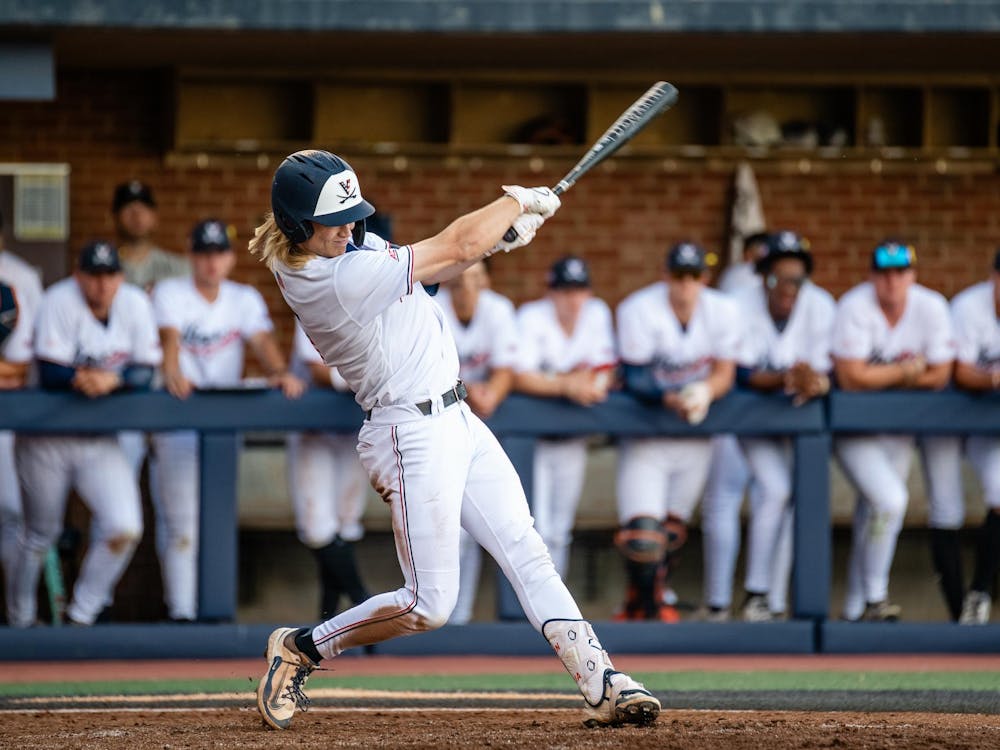Spending 29 hours on a bus in one weekend doesn't sound like much fun, but the Virginia women's crew team came out of it all right.
The weekend didn't start off so well. The team traveled to Boston for competition against Brown and Boston universities on Saturday, and Brown swept all six races.
Virginia and Boston University split second place in three races each. The Cavalier second varsity eight, second varsity four and novice eight all took second place to Brown. Virginia's first varsity eight, varsity four and second novice eight all finished third.
But once they finished in Boston and headed to Ithaca, N.Y., for competition against Cornell on Sunday, the Cavaliers' weekend on the road took a definite turn for the better.
"We were disappointed in the race in Boston, I was and they were," Virginia coach Kevin Sauer said. "We just didn't do a very good job, we didn't get out of the starting line very well and attack the race. I think we realized that we needed to find a new level, and I think they really started to show that on Sunday."
In races on Cayuga Inlet, Virginia took four of six from Cornell. The Cavaliers won the first varsity eight race solidly, in a time of 6 minutes, 40.3 seconds, just over nine seconds ahead of Cornell.
In the second varsity eight competition, Virginia inched by Cornell, 6:51.0 to 6:51.8. The Cavaliers won the varsity four race in a time of 7:50.5, and the second varsity four in 7:37.2.
"The varsity especially did really well," Sauer said. "They had a great first 1,000 meters and they would have kept going if they had a little more juice. They got off the line really fast and stayed really strong."
Cornell took the first novice eight race, defeating the Cavaliers by nearly 12 seconds. Cornell also won the second novice eight, finishing 16 seconds ahead of Virginia.
The wins at Cornell gave the Cavaliers a positive outlook for the weekend ahead of them: the ACC championships at Clemson.
"I think this weekend gave us a lot of inspiration," varsity captain Jennifer Herberger said. "It gives us a building point to keep on going from there."
Although Virginia will compete later in the Eastern Sprints Championships in Camden, N.J., on May 13, a competition that promises to be more difficult because it includes top teams outside of the conference like Brown and Princeton, the ACC tournament is vital in its own way.
If Virginia can win the ACC championship, it will secure one of 10 coveted NCAA tournament spots. NCAA bids are offered to the five teams that win conference championships and the other five spots are awarded to teams at large.
The ACC tournament is "important for selection to NCAAs because only 10 teams are selected," Sauer said. "Whoever wins the ACCs is going to be the NCAA team bid for the south region."
If they do not take first place in the ACCs, the Cavaliers still have a chance at an at-large NCAA bid, but they certainly would rather secure a definite spot. Virginia has competed in the NCAA tournament for the past four years, the only four years the tournament has been in existence, and has placed in the top four each time. Only Brown and Washington have completed the same achievement.
The weekend on the road, despite its ups and downs, left Virginia with confidence and much to look forward to in the coming weeks.
The team "did a really good job and found out what they're capable of," Sauer said. "If they keep doing that, they're going to be competitive with everybody. That was the saving grace for the weekend."
Herberger stated clearly the goal that the Cavaliers are focusing on to get them to the NCAAs.
"We have to win this weekend"






